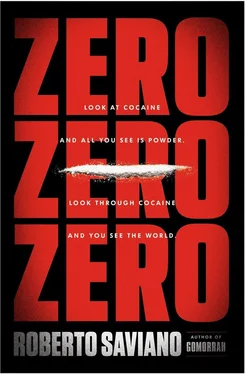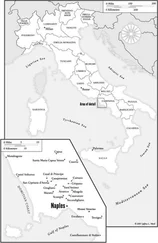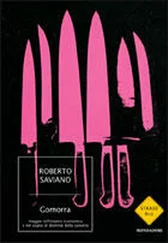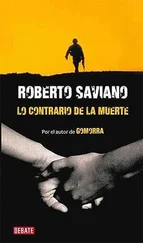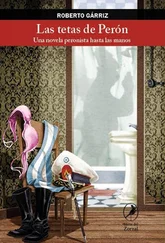Don Semën was in prison for nearly all of the most dramatic phase of the Russian-Ukrainian gas war. But what has he got to do with it? In 2006 Julija Timošenko had already told the BBC: “We have no doubt that Mogilevic is the person behind the entire RosUkrEnergo operation.” Hers is one of the loudest among the many accusing voices that fell on deaf ears for years, until a document surfaced and caught the notice of public opinion in the West. It’s one of the secret files published by WikiLeaks: a cable from Kiev dated December 10, 2008, from the American ambassador William Taylor. It refers to a meeting with Dmitro Firtaš, the Ukrainian oligarch behind RosUkrEnergo, in which he warned Taylor that Timošenko planned to eliminate his company both for personal interests and internal political conflicts, for which she was willing to make concessions to Putin, thus strengthening his influence in Europe. But then, as if to preemptively remove any weapon his opponent might have to discredit him, according to Taylor, the gas magnate goes on: “He [Firtaš] acknowledged ties to Russian organized crime figure Semën Mogilevic, stating he needed Mogilevic’s approval to get into business in the first place. He was adamant that he had not committed a single crime when building his business empire and argued that outsiders still failed to understand the period of lawlessness that reigned in Ukraine after the collapse of the Soviet Union.” Another cable, which predates their meeting, talks of potential ties between Firtaš and Mogilevic, suggested by their shared investment in certain offshore companies and the fact that they have the same lawyer. These ties had already been noted in a previous intermediary gas company, Eural Trans Gas. But that same lawyer sues the Guardian for publishing documents circulated by WikiLeaks’s Julian Assange in an article by Luke Harding titled “WikiLeaks Cables Link Russian Mafia Boss to EU Gas Supplies.” In the correction that the London paper was forced to print on December 9, 2010, “to clear up any subsequent mistranslation or misunderstanding of their meeting,” Firtaš denies having any connection to Mogilevic other than a simple acquaintance.
The gas affair affects the vital interests of an entire continent. RosUkrEnergo’s profits just from 2005 to 2006 came to almost $1.6 billion, little less than half of which ended up in the pockets of Firtaš and whoever else shared in his earnings. What does natural gas have to do with cocaine? At first glance, nothing. Except for one essential factor: dependency. Cocaine creates addiction, while there’s no need to create an addiction for the gas to heat our homes. The business that those who’ve made real money bet on — money you can weigh, leaf through, smell — always originates from some irresistible need. And the Brainy Don, the specialist in scams and financial Chinese nesting boxes, knows this perfectly well.
Peter Kowenhoven, an FBI supervisory special agent, was asked to explain why they had put Mogilevic on their ten most dangerous criminals list, since he’s not a violent criminal or psychopathic serial killer. “He has access to so much,” he replied succinctly, “… that he can, with a telephone call and order, affect the global economy.”
I miss the sea. The overly crowded and dirty beaches where I spent my summers, echoing with shouts of vendors offering coconut slices, taralli, mozzarella, drinks, granite. Mothers shrieking for their children, wind-up radios broadcasting the soccer game and neomelodic Neapolitan songs, beach balls that either landed on my towel, spattering it with sand, or hit the wrong person on the head. Floating in the murky water, warm as a bath by this point, soaking myself for ages. I even miss the sunburn on my skin, the feel of the sheets, my shivers, which I tried to ignore, unable to fall asleep till very late. Nostalgia plays these sorts of tricks; it makes you yearn for things you’d really never want to experience again.
I miss even more the sea I’d later venture out on in a tiny fishing boat. I liked earning a little money that way, exhaling every time I saw the coast recede, nothing left but the expanse of azure, the smell of salt, the stink of nets and diesel. If the sea started to swell, I’d feel sick, and often vomited. But now even that is a precious memory, the proof that I really did travel by sea, proof I still carry in my gut.
I grew up on seafaring books. The catalog of ships in the Iliad fascinated me, and even as a boy I instinctively perceived that the Odyssey w as about exploring the limits of human knowledge. A cunning and courageous man had circumscribed it in the beginning. I discovered and never stopped loving the typhoons and dead calms that put Joseph Conrad’s captains to the test; I got lost in the obsessive hunt for Moby Dick, demon of the human soul incarnated in a sperm whale. At the time I sided with the great cetacean and identified with Ishmael, lone survivor of the wreck of the Pequod, saved to tell her tale. Now I know I have the same obsession as Captain Ahab. My White Whale is cocaine. It too is maddeningly elusive; it too sails every sea.
Sixty percent of the cocaine seized in the last ten years was confiscated on the high seas or in port. Sixty percent is a lot. Because all the other transportation routes are busy too, all the time. The Mexican border is a sieve through which cocaine flows constantly into the world’s biggest consumer, the United States. Not one second passes without someone crossing over with coke stashed in the baby’s diaper or in the cake Grandma baked for the kids. About twenty million people cross the U.S.-Mexican border every year, more than at any border on the planet. The United States manages to monitor at most a third of the more than nineteen hundred miles, even with three hundred miles of fencing, helicopters, and infrared vision systems. None of which can stop the flow of illegal aliens who risk dying in the desert, and who fatten up the coyotes —cartel-controlled human traffickers. In fact, it has created a double source of income for the coyote : If you don’t have the fifteen hundred to two thousand dollars he demands, you can pay off your debt by carrying cocaine in your bag.
It’s impossible to search every person, car, motorcycle, truck, and tour bus lined up at the forty-five official checkpoints; vehicles are prepared in the most sophisticated manner, as well as cans of coffee and jars of chili peppers, whose odors are strong enough to fool the sniffer dogs. Convinced that the best courier is the one who doesn’t even know that’s what he is, narcos use magnets to attach cocaine to the underside of cars with permits to cross the border in the fast lane. Once the cars cross the border they find a way to retrieve the stuff. Or they catapult it over the fence from the Sonora Desert into the Arizona desert, using modified Leonardo da Vinci machines. They fly it in at night on hang gliders painted black, like nightmarish bats or Batmobiles: two thousand dollars and possible death to the pilot if the cargo to be dropped across the border releases poorly and throws off the balance of his glider. A man was found, broken to bits, in a lettuce field near Yuma, Arizona. Half the cocaine he’d been carrying was still in the metal cage under one of the wings, so it was clear it wasn’t some extreme sport accident.
The same is true with airplane transport. All over the world, every minute, some drug mule is boarding a commercial plane. And at that same moment dozens and dozens of containers purportedly filled with other merchandise are being loaded into the belly of a cargo plane.
Yet all this perpetual motion, all this ubiquitous, dusty frenzy, can’t even begin to equal the amount of cocaine carried by sea. The percentage is even higher in Europe: 77 percent between 2008 and 2010. And the European market has almost reached U.S. levels. The sea is the sea. Oceans cover more than half the earth’s surface: another world. If you want to work at sea, you have to accept its rules and those of seafaring men. “There’s no bar in the middle of the sea,” as they say where I come from. And no working cell phones, police stations, or emergency rooms. Nor are there jealous wives, anxious parents, girlfriends whose hopes you don’t want to dash. Nobody. If you want to avoid becoming an accomplice, you learn to look the other way.
Читать дальше
